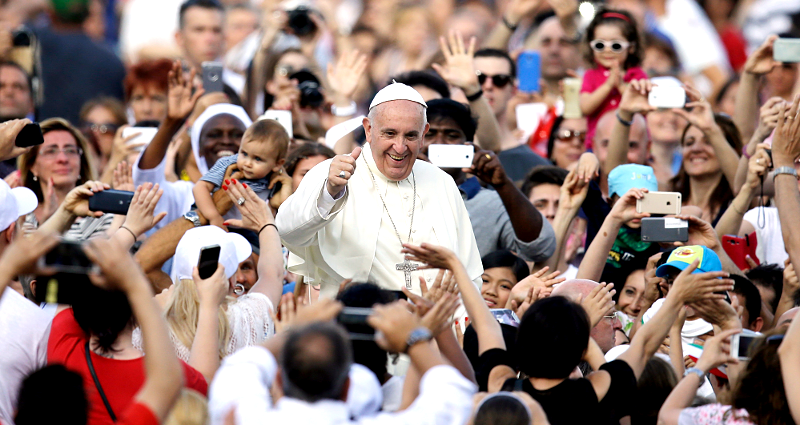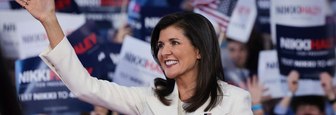Pope Francis's intervention was well-received in the United States, including by Catholics and usually skeptical Republicans, though doubts remain
Pope Francis’s encyclical endorsing the responsibility of developed countries working to end climate change met with a positive assessment from Americans, and his efforts moved some Catholics (and even some Republicans, who have been generally skeptical) to accept that climate change is both occurring and is caused by human activity.
In the latest Economist/YouGov Poll, the Pope’s message was as effective as January’s report by NASA (the National Aeronautic and Space Administration) and NOAA (the National Oceanic and Atmospheric Administration) on global temperature rise. But it is yet to be seen how long-lasting Francis’s impact will be, as the NOAA-NASA reports’ effect in altering opinion soon dissipated.
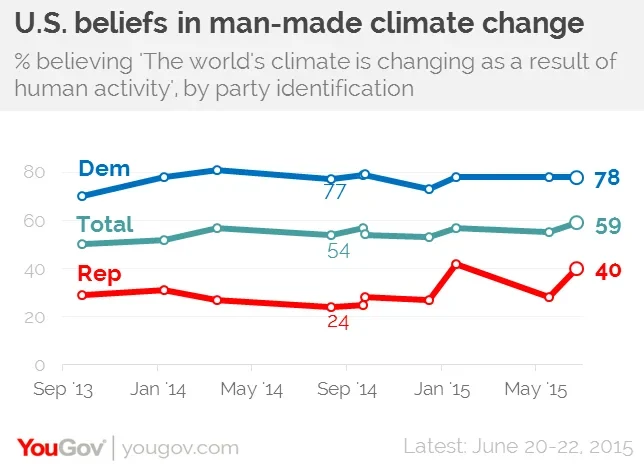
The Pope’s encyclical was only the second of his papacy, and may indicate the importance of the environment to this Pontiff. Pope Francis is extremely well-liked by the American public, and especially by Catholics.
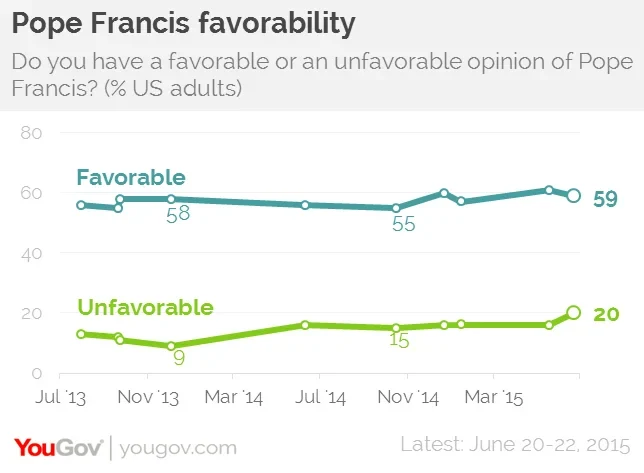
Among the public overall, favorable ratings of the Pope outweigh unfavorable ones by three to one; among Catholics the ratio is more than six to one (77% favorable to 12% unfavorable).
However, while Catholics’ views of climate change have shifted some in the wake of the encyclical, many Catholics do not characterize climate change as a moral issue, which may mean that for many there is no obligation to follow what it says. In fact, the Pope has not indicated explicitly that he is speaking ex cathedra within his encyclical, Laudate si’.
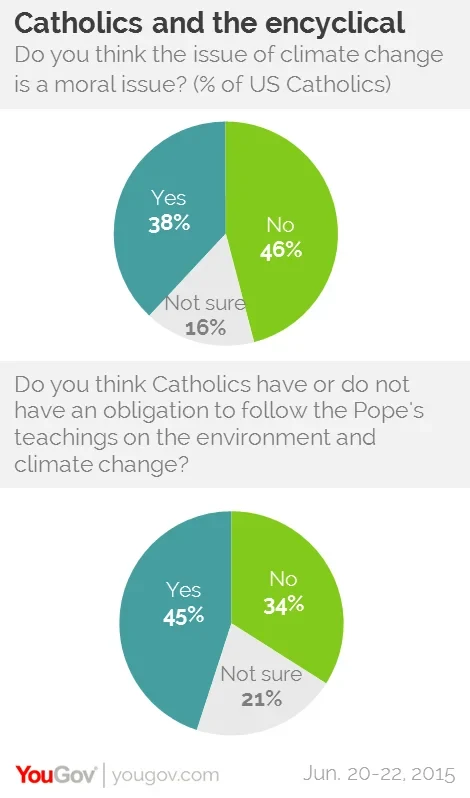
The percentage of Catholics agreeing that climate change exists and is caused by human activity rose eight points in the wake of the Pope’s encyclical. In this week’s poll, 61% of Catholics thought that, up from 53% in a poll conducted in mid-May.
There are doubters. About a third of the public (and nearly half of Republicans) say they do not trust the Pope at all to tell the truth when it comes to the issue of climate change (putting him behind climate scientists but well ahead of politicians and oil and gas interests). But the encyclical itself receives a great deal of support. Most in the public have heard at least something about it, and two in three approve of Francis’s urging that world leaders take action. Half of Republicans approve, as do three in four Catholics.
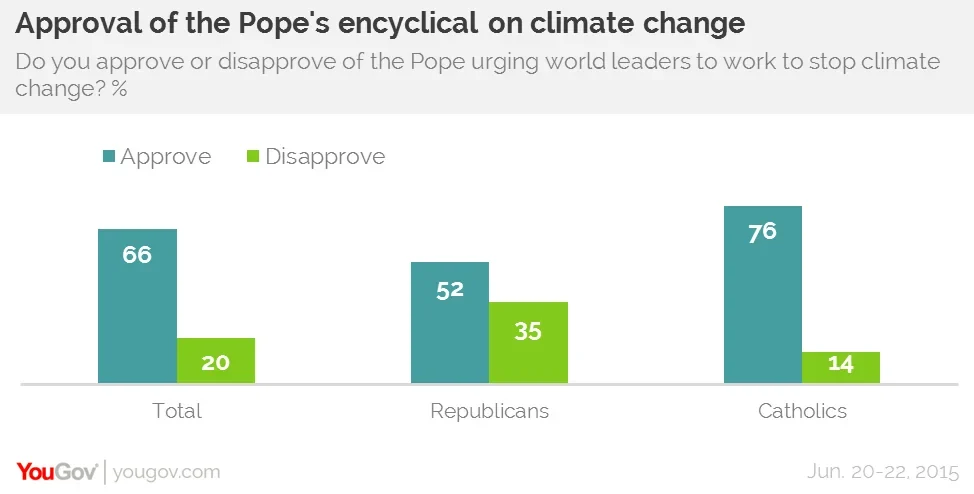
This represents a shift since last month, when stories about the likely tone of the Pope’s expected encyclical were reported. In May, Republicans were closely divided on his taking this action; just 66% of Catholics approved of it.
Most see the Pope as having at least some influence on global affairs and view that as a good thing. Last month, Americans supported Francis’s initiatives to help normalize relations between the U.S. and Cuba. This week, by 58% to 22%, Americans say Pope Francis should take an active part in world affairs. Catholics are even more likely to think this. However, Republicans are less likely to agree.
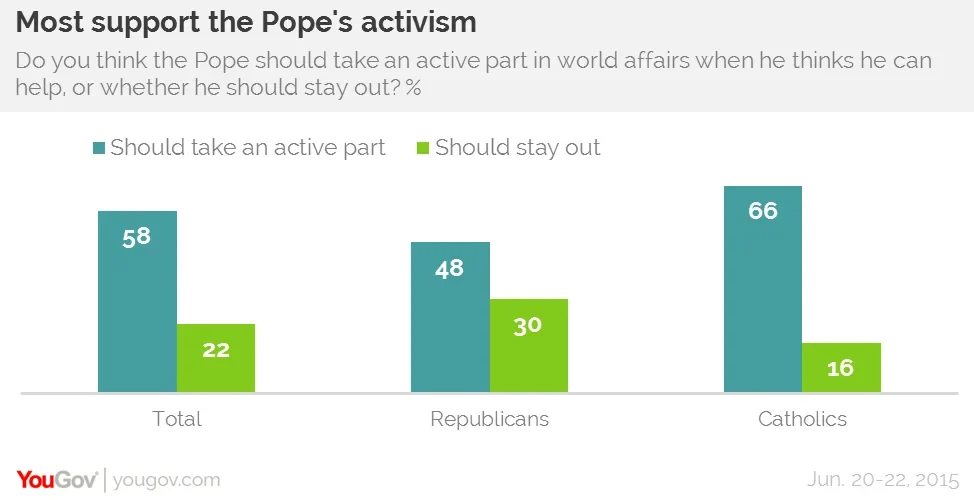
And the specifics of the Pope’s message about what government should do were well-received. This week, 63% agree with Francis that developed countries have a greater responsibility than less developed countries to control greenhouse gases and pollution, and the same percentage believe developed countries should help poorer nations with the results of climate change. About half of Republicans and seven in ten Catholics agree.
Economist/YouGov poll archives can be found here.
